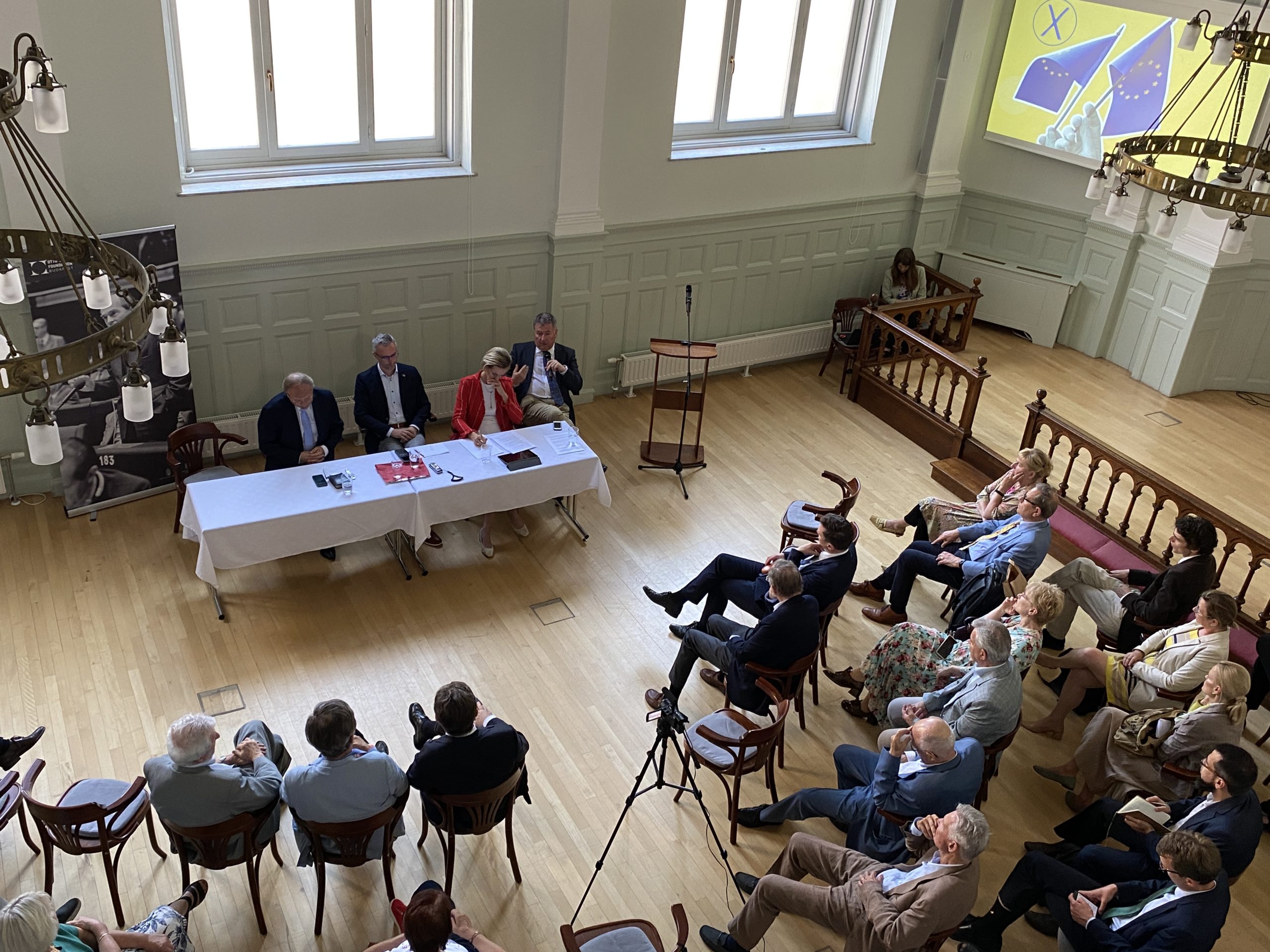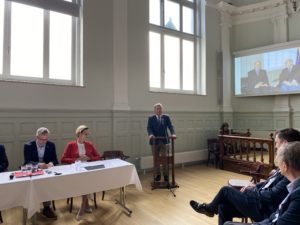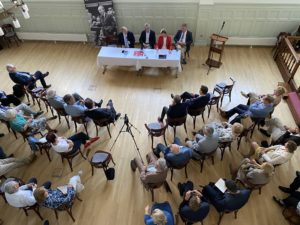In his welcome address, Gergely Prőhle, Director of the Foundation, recalled the historical fact that Otto von Habsburg became a member of the continent’s highest decision-making body almost 45 years ago to the very day—on 10 June 1979. The former Crown Prince was innately confident in a democratic environment, and with his “natural poise” and fluency in seven languages, he represented the idea of a Europe based on Christian values, thus contributing to the conservative turnaround of the 1980s.
The first speaker was political scientist Botond Feledy, who outlined the results of the elections: he highlighted the strengthening of the People’s Party and the visible decline of the Green and Liberal factions. The Deputy Director of the Jesuit European Social Centre described the events that have profoundly shaped life on our continent over the last five years—the financial and economic crisis, the pandemic, the war between Russia and Ukraine, and the Green Deal—which have caused a palpable sense of uncertainty among ideologues of different political movements. Even the views of the same camp have fragmented to such an extent that it appears even more challenging to form a major consensus on certain issues in the new body, he pointed out. However, climate change, war, social solidarity, the economic situation and migration require urgent solutions.
István Hiller, a Member of the National Assembly representing the MSZP (Hungarian Social Democratic Party), acknowledged that as a Hungarian politician, advocating social democratic principles is not the most soul-stirring commitment these days. He stressed that, although the European elections were on a continental scale, the effects of these elections were felt in more than one member state: governments fell in Belgium and France, and leaders of failed parties resigned en masse. To interpret these phenomena, the historian drew on the research of a new movement, the Klimageschichte, which revealed striking parallels between the climatic conditions and the evolution of political-social-demographic relations over the last 1000 years in Europe. Hiller concluded by talking about the mass psychological concept of the “culture of forgetting”, which influences social consciousness and washes people’s experiences out of their minds within three lifetimes at the latest. This may (also) explain the spread of discourse on war across Europe and the intensification of war rhetoric.
The incumbent MEP of Fidesz underlined the high participation in the elections across Europe and described the Hungarian centre-right as a force that would win the elections in Hungary with 2/3 of the votes cast. Enikő Győri, looking back on the struggles in Brussels over the past five years, raised the issue of discrimination in Hungary and predicted no change in this respect for the forthcoming period. What we need most, she said, is to stand up for our convictions even more consistently in the future, when possible, and to represent the interests of all Hungarians. She added that whether we can start clarifying some of the matters close to our hearts during our Presidency of the Council of the European Union, which begins on 1 July, is crucial.
During the more polemical moments of the discussion, some guests commented on István Hiller’s question regarding the possibility of a left-wing viewpoint system based on traditional social democratic foundations, which could attract the masses while, in the meantime, would free itself from the ballast of extreme liberal ideological components. The socialist politician also cautioned against further loosening of Hungary’s ties with the EU and the Atlantic, based on the trend of recent years.






